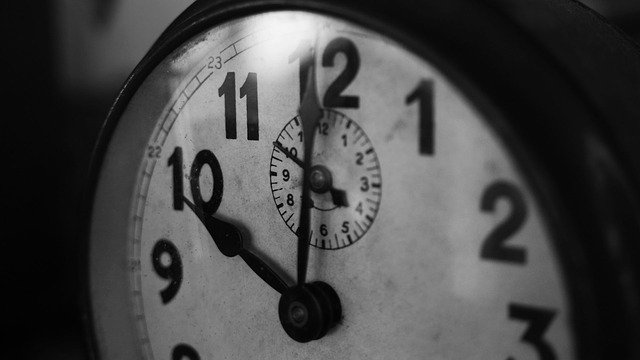Kapanlagi.com - During fasting in Ramadan, sleep schedule will be disrupted. In fact, a study suggests that during fasting, a person will lose at least 40 minutes of sleep. This is because, during fasting, a person has to follow the routine of sahur (pre-dawn meal), which requires waking up earlier than usual. Therefore, in order to fulfill the need for sleep, one must find the right way to maintain a sleep pattern.
During Ramadan fasting, the need for sleep must still be fulfilled. Lack of sleep can make the body feel tired and easily drowsy. Especially for those who continue to work during fasting. Lack of sleep can affect stamina while working, which then affects disrupted productivity.
In addition to sleep patterns, mood is also important to be maintained during fasting in Ramadan. To keep your mood up, you can join the KapanLagi Buka Bareng event next weekend.
----------------------
Ramadhan News: Want to Break Fast with Celebrities?
Join KapanLagi Buka Bareng, an online iftar event with 1000 people, celebrities, and live music. How? Register first here, and fill in your personal information. Everything is FREE. Read the complete guide here.
----------------------
Don't worry, to ensure your sleep pattern is fulfilled, you can follow these tips to maintain your sleep pattern during Ramadan.
1. Sleeping Earlier

(credit: pixabay)
The first way to maintain a sleep pattern during fasting is by sleeping earlier. This makes sense, as advancing bedtime means that you are indirectly replacing the sleep time that is reduced due to the sahur activity.
You can advance your bedtime at night, according to the time you usually spend during sahur. This means that if you can spend approximately 1 hour during sahur, it is advisable to advance your bedtime by about 1 hour.
As a safe measure, during the fasting month of Ramadan, you should start sleeping at around 09:00 - 09:30. According to calculations, the average sleep requirement for adults is 7-8 hours, and starting to sleep between 09:00 - 09:30 is considered sufficient for sleep needs if you have to wake up for sahur. If you still feel it is not enough, you can fulfill it with a nap.
2. Take a Nap in the Morning
One way to maintain a sleep pattern during fasting is by replacing the lost sleep during suhoor. It is advisable to replace the lost sleep in the morning.
The sooner the lack of sleep is replaced, the better. Because it will make it seem like the sleep time is normal and not disturbed. In addition, by fulfilling the sleep needs in the morning, the body will feel more fit and the stamina tends to be more awake. However, it is advisable not to sleep immediately after suhoor, as it can have a negative impact on the body.
3. Taking a Nap

(credit: pixabay)
If you cannot sleep in the morning, maybe because you have to work or do other activities, don't worry. You can still meet your sleep needs during the day by taking a nap.
You can use your break time to take a short nap. In addition, a 20-30 minute nap is also believed to restore energy so that you can be productive again.
4. Setting a Regular Sleep Schedule
After determining the time in maintaining a sleep pattern during fasting according to needs and abilities, whether sleeping early, sleeping in the morning, or taking a nap, the next step is to create a routine schedule. By creating a sleep schedule, you will find it easier to fulfill your sleep needs during fasting.
In addition, a regular schedule indirectly becomes your sleep pattern during the month of Ramadan. With that, your sleep pattern is formed and your body's health is also better maintained. Scheduling your sleep time will also make it easier for you to allocate time for other activities.
5. Avoid Caffeine Consumption

(credit: pixabay)
As we already know, drinking coffee has been one of the most effective ways to keep our eyes awake. Therefore, it is better to reduce or even avoid drinking coffee during fasting. This is because it takes quite a long time to eliminate the effects of caffeine in our body.
6. Avoid Smoking
In addition to drinking coffee, smoking can also help keep our eyes awake longer. This may not be widely known, but it turns out that nicotine in cigarettes also has the same effect as caffeine in coffee, in terms of making the body feel more energetic and driving away sleepiness.
So, during fasting, it is advisable to avoid smoking and drinking coffee at least 1 hour before bedtime. In addition to cigarettes and coffee, it is also recommended to avoid heavy meals before bedtime. However, the reason for this is more related to health. Eating heavy meals before bedtime can trigger diseases such as stroke.
7. Arrange the Bed as Comfortable as Possible

(credit: pixabay)
Some people may be able to sleep anywhere. However, there are some people who can only sleep in a bed under certain conditions, such as cleanliness, darkness, or comfort.
Therefore, the bed should be arranged as well and as comfortably as possible according to needs. A comfortable bed will improve sleep quality. Because sleep needs and patterns are not only about duration, but also about sleep quality. The length of sleep duration is meaningless if sleep quality is not maintained.
8. Routine Exercise

(credit: pixabay)
It is a common knowledge that exercise provides many benefits for health. One of the benefits of exercise is that it can improve sleep patterns and keep a person away from insomnia. Performing the Ramadan fasting should not be a barrier to not exercising.
Because, even during fasting, we can still do various light exercises, such as morning walks, yoga, cycling. Exercising during fasting is actually safe if done at the right time, such as in the morning or afternoon. Try to exercise regularly during fasting, then feel the improvement in your sleep quality.
So, those are 8 ways to maintain sleep patterns during Ramadan fasting. You can follow the above methods to ensure a better and quality sleep pattern. Also, to keep your body fit throughout the fasting days.
(kpl/psp)
Disclaimer: This translation from Bahasa Indonesia to English has been generated by Artificial Intelligence.

















